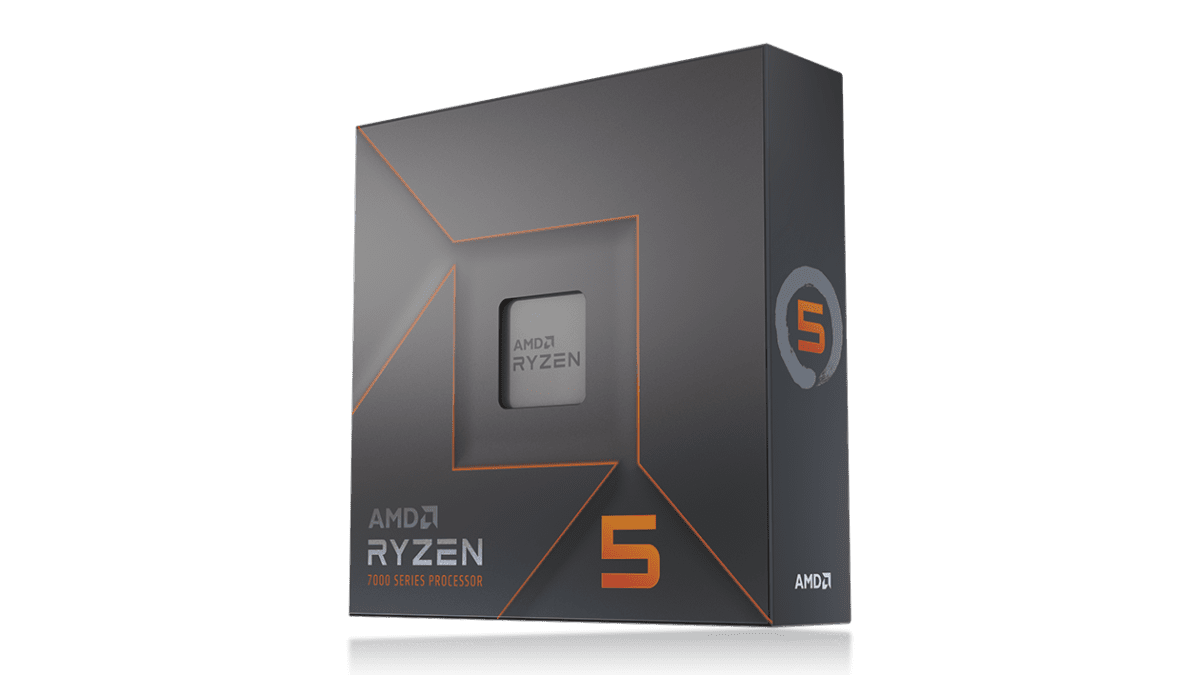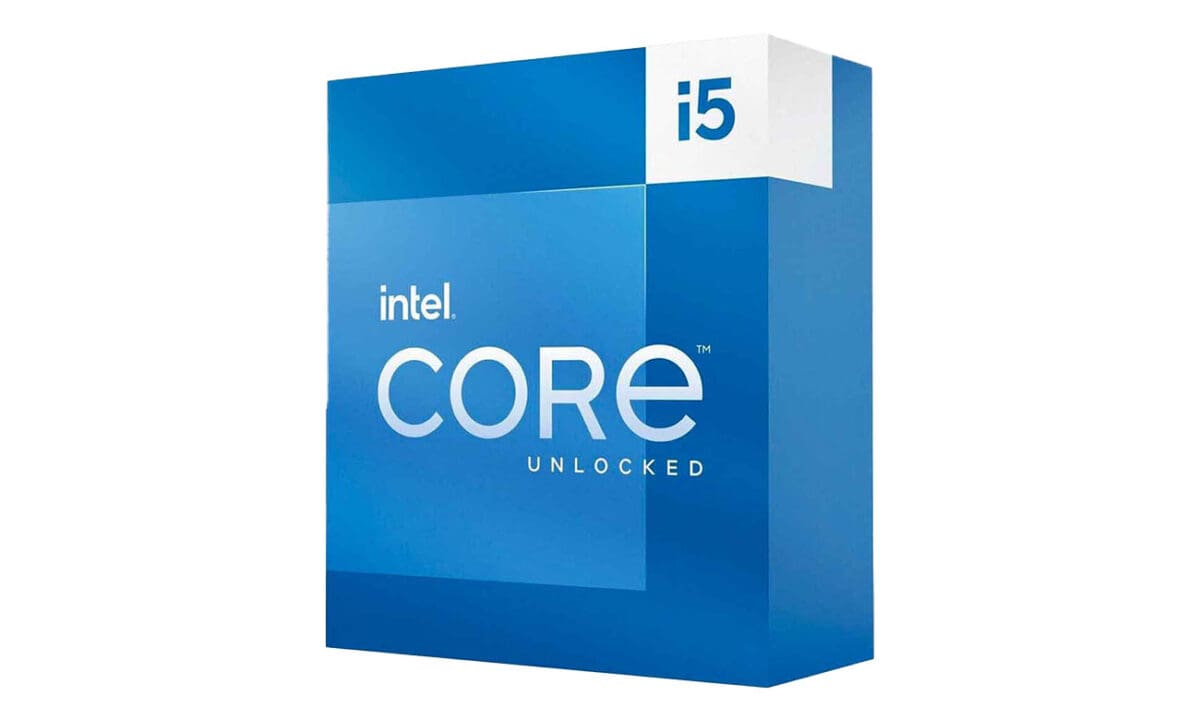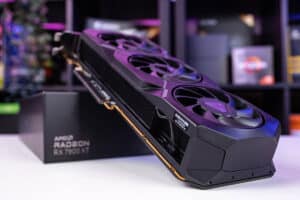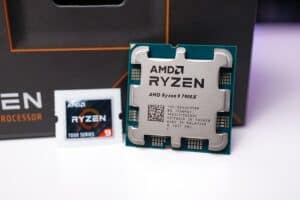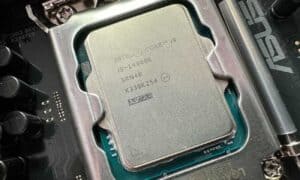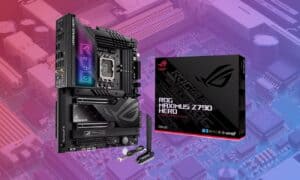Best CPU for RX 7600 XT in 2024 – our top picks reviewed
Best CPU for RX 7600 XT? We have all the details
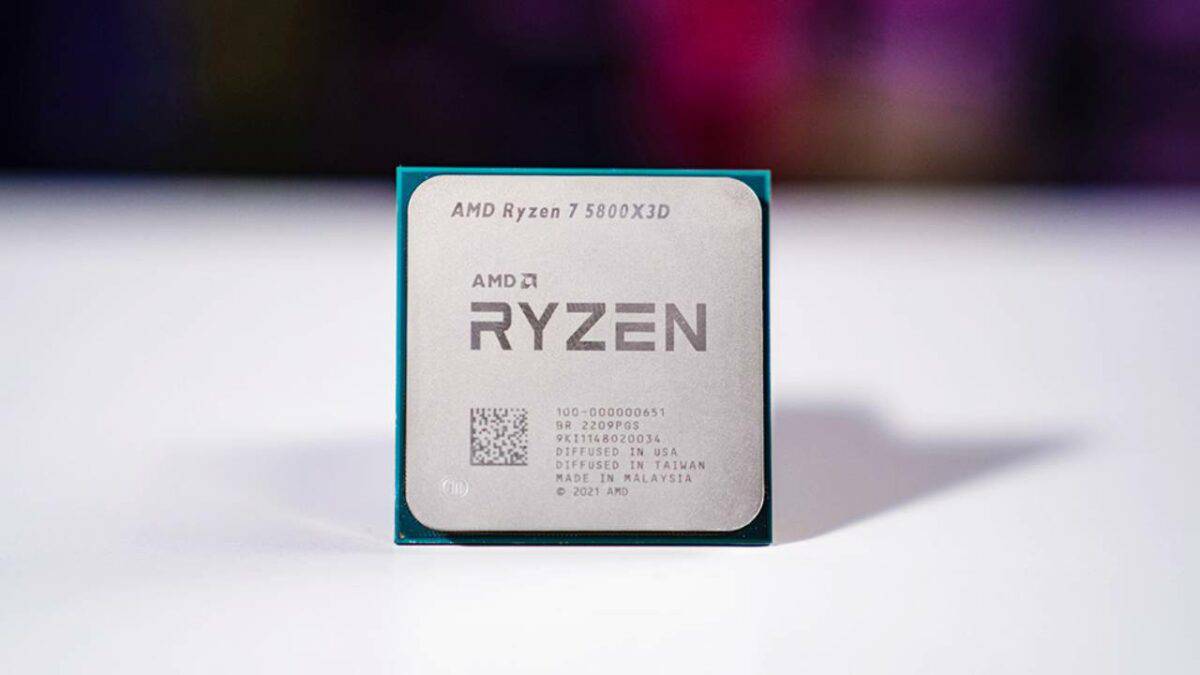
WePC is reader-supported. When you buy through links on our site, we may earn an affiliate commission. Prices subject to change. Learn more
We’ve been counting down the days until the RX 7600 XT release date, and it’s about time we figured out what the best CPU for RX 7600 XT is now that this GPU is ready to hit shelves. We previously covered the RX 7600, but this refreshed XT variant packs a little more power, so what’s the best CPU for the job? We can recommend the Ryzen 5 7600X or Intel Core i5-14600K right away, but there’s more to discuss. As better processors hit the market, we’ll be back to keep this guide up to date as much as we can.
Once you’ve figured out where to buy the RX 7600 XT, you may want to consider upgrading your processor to something more suitable – especially if you haven’t upgraded in some time. The RX 7600 XT specs show some improvement from its predecessor, albeit not by a whole lot. Regardless, you’ll want to have a capable CPU to back it up as to avoid any bottlenecking.
Today’s best CPU deals
- AMD Ryzen™ 9 7900X3D – Save 17% NOW!
- Intel Core i9-13900KF Gaming Desktop Processor – Save 15% NOW!
- AMD Ryzen 9 5900X – Save 51% now!
- AMD Ryzen 7 7800X3D – Save 18% now!
- Intel Core i9-13900K – Save 17% NOW!
- Intel Core i7-13700K – Save 12% NOW!
- AMD Ryzen 5 5600 – Save 27% NOW!
- INLAND Micro Center AMD Ryzen 5 5600X with MSI MPG B550 – Save 7% now!
- Micro Center AMD Ryzen 5 4600G with MSI B550 – Save 16% now!
- Micro Center AMD Ryzen 5 5600X with MSI B550M PRO-VDH – Save 7% now!
Best CPU for RX 7600 XT
Below you’ll find our top picks and more reviewed in finer detail. We’ll delve into what makes these some of the best CPUs for gaming when paired with the RX 7600 XT, discussing the pros, cons, and just about everything in between.
AMD Ryzen 5 7600X
AMD Ryzen 5 7600X
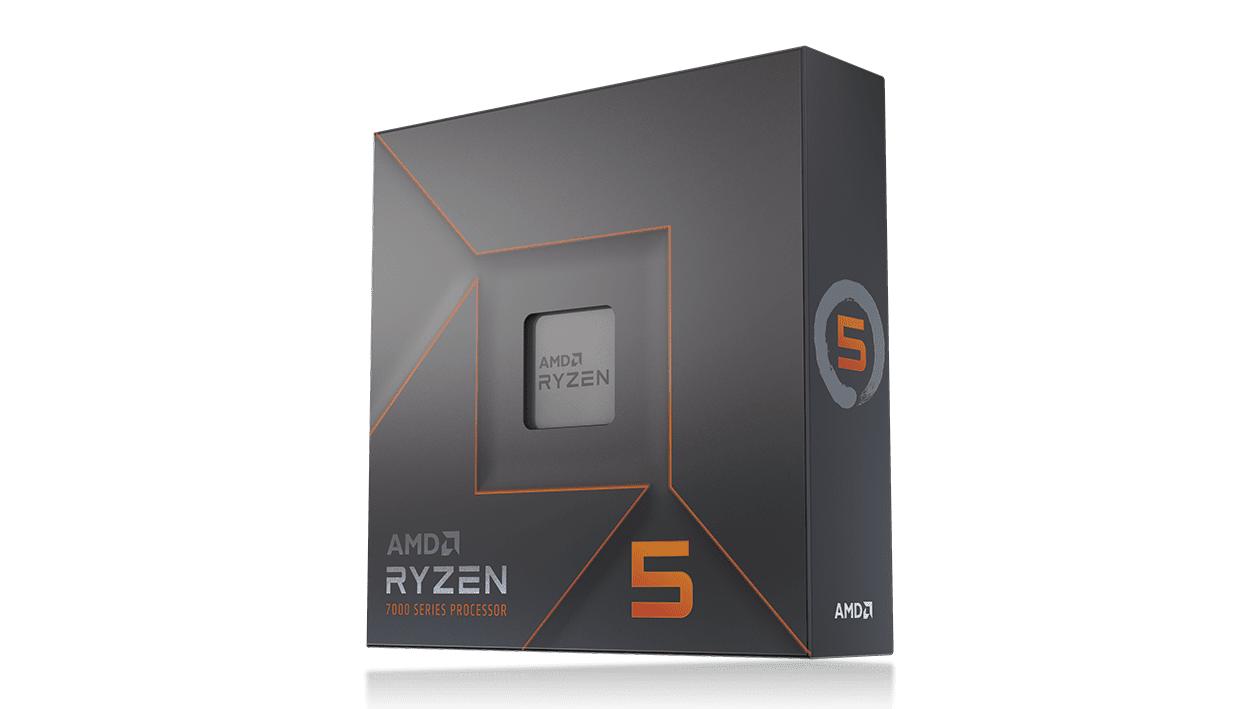
Cores
6
Threads
12
Base speed
4.7GHz
Boost speed
5.3GHz
Cache
L3 32MB
Socket
AM5
- Great value for money
- Solid gaming performance
- Good power efficiency
- Excellent single-core benchmarks
- AM5 upgrade can be costly
As you may figure from the near-matching names, the 7600X occupies a similar mid-range spot within AMD’s Ryzen 7000 series range. That makes it a strong choice for the RX 7600 XT and something of a great value pick as well. Our 7600X review goes in more detail if you want to learn about specs and benchmarks, but we can give you rundown here. The 6 cores / 12 threads design is relatively modest, but it provides you with solid multitasking performance nevertheless. The 5.3GHz boost speed allows for great single core performance as well.
With a TDP of 105W, it does run hotter than the previous 5000 series equivalent, so make sure you have a suitable CPU cooler for 7600X if you want to get the best performance out of this mid-range beast. The power efficiency is still great considering the clock speeds you see here though. Real-world benchmarks show that this CPU outperforms the previous gen’s 5600X by up to 14% across a number of productivity and gaming workloads.
One of the big benefits of opting for this 7000 series CPU is that you’ll be on the latest AM5 platform. This will future proof your system for some time, if the long lifespan of AM4 is anything to go by. This does come with the downside that upgrading can be costly if you don’t already have an AM5 motherboard or DDR5 RAM ready to go. All in all, if you’re looking for a strong CPU to avoid any bottlenecks that’s also great value for money, the 7600X makes a whole lot of sense.
Intel Core i5-14600K
Intel Core i5-14600K
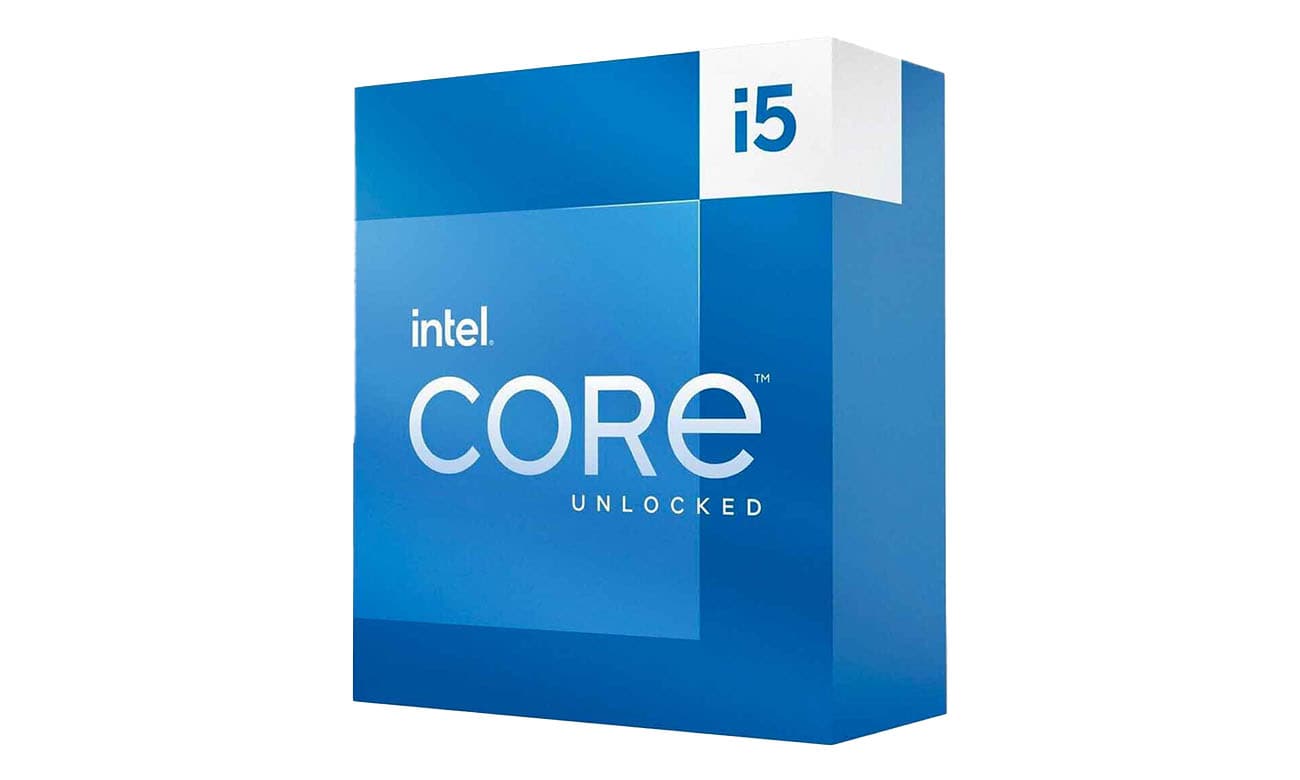
Cores:
14 (6+8)
Threads:
20
P-Core Speed:
5.3GHz (boost) 3.5GHz (base)
E-Core Speed:
4.0GHz (boost) 2.6GHz (base)
DDR5 support:
Yes @ 5600MHz
TDP
125W base 253W PL1 & PL2
- Large number of cores and threads
- Strong single core performance
- Great all-rounder for productivity and gaming
- Runs relatively cool
- Not much of an improvement over i5-13600K
Next up is a option from Intel’s 14th generation of CPUs, their latest set of processors. Despite not really providing a massive performance boost compared to the 13th gen, the i5-14600K is a little more reasonably priced compared to what we saw at launch, so it finally earns its place within this guide. We put together 14600K review if you want to learn even more about this processor. This pick is of course suitable for anyone based on an Intel motherboard, specifically one with the LGA 1700 socket.
Intel’s unique design that incorporates both performance and efficiency cores allows for excellent multitasking, which is why their CPUs are popular for heavy workloads and productivity scenarios. That doesn’t mean they falter for gaming either though, as you get both great single and multi-core performance with performance core speeds up to 5.3GHz. The 14th gen works both with DDR4 and DDR5 boards as well, so there is good amount of compatibility if you’re upgrading just your CPU from something like the 12th gen and want something cost-effective, though we do recommend DDR5 for full 5600MHz memory speeds.
Overall, the 14600K represents a solid mid-range processor that pairs exceptionally well with the RX 7600 XT. Nothing too over the top, but an up-to-date choice which will last you for years to come. If you do want something marginally cheaper, then the 13600K is similar enough to consider.
AMD Ryzen 7 5800X3D
AMD Ryzen 7 5800X3D
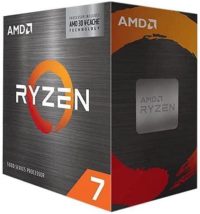
Cores
8
Threads
16
Max boost speed
4.5GHz
L3 Cache
96MB (64MB 3D V-cache)
TDP
105W
- Excellent value for money
- Stacked 3D V-Cache for top-tier gaming performance
- Great multi-core performance
- Decent energy efficiency
- Not on the latest AM5 platform
- Cannot be overclocked natively
Looking back to the older 5000 series here, the 5800X3D was once the best processor for gaming on the market, and it still holds up as a strong selection to this day. For a graphics card like the RX 7600 XT, it delivers plenty of power and it would be our go-to option if you want to focus on gaming and don’t mind sticking with the older AM4 platform, this is golden. Our 5800X3D review gave it top marks for good reason, and you won’t be disappointed with its performance.
Despite nerfing the max boost speed a little bit to accommodate the larger cache, you still get 4.5GHz speeds for solid single-core performance. With 8 cores and 16 threads, it’s suitable enough for multitasking and productivity, even if gaming is the main focus of this powerhouse. Speaking of, the real selling point of this CPU is of course the stacked 3D V-Cache technology – the 5800X3D was the first this, and it allows plenty of cache to give large performance boosts in CPU intensive games.
We have to touch on the fact that choosing an older 5000 series CPU means you have to stick to an AM4 motherboard. This isn’t really bad news at all though, as it will be much more cost effective, especially if your rig is already based on this. If you’re building from scratch, then you’ll also save on picking up DDR4 RAM and so on. AM4 still remains incredibly popular and support continues to exist.
AMD Ryzen 9 7900X
AMD Ryzen 9 7900X
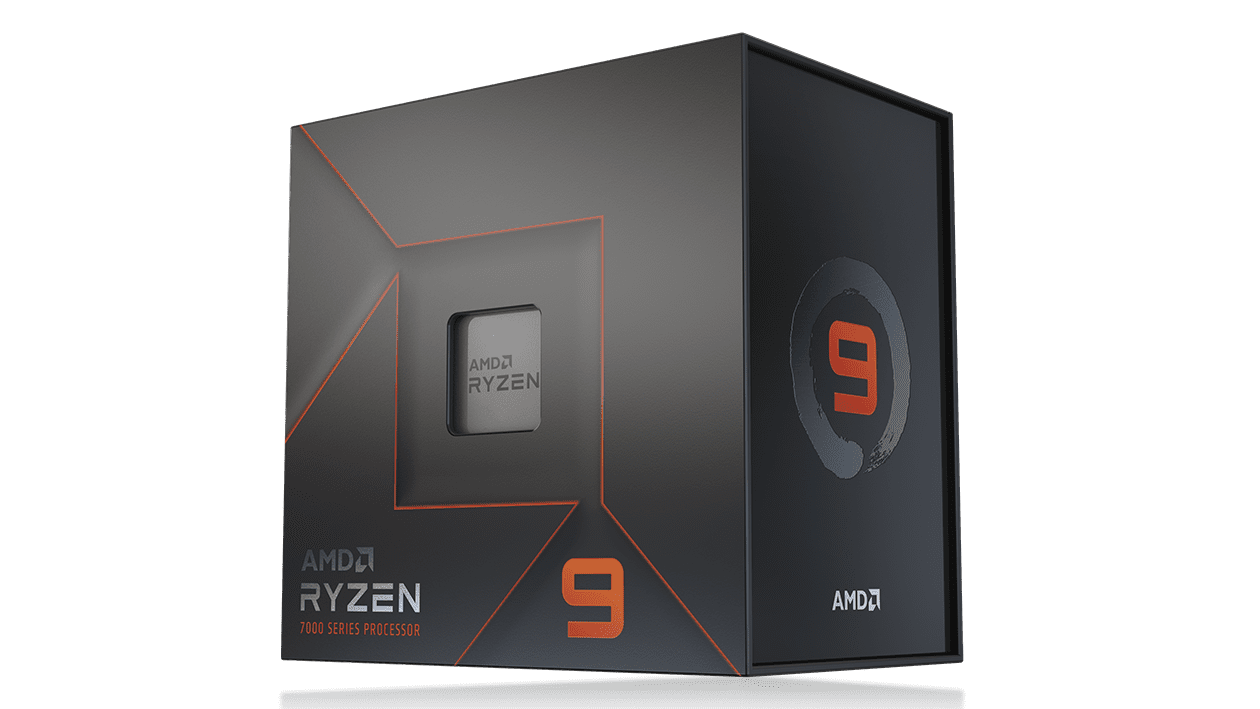
Cores
12
Threads
24
Base speed
4.7GHz
Boost speed
5.6GHz
Cache
L3 64MB
Socket
AM5
- Excellent for productivity and gaming
- High level of performance per Watt
- Latest AM5 socket
- Plenty of cores and threads
- Expensive
- Requires strong cooling solution
If you want a high-end option to pair with your 7600 XT, then the AMD Ryzen 9 7900X would be our go-to. Just below the flagship 7000 series processors, the 7900X is powerful CPU which is more than capable for gaming and productivity workflows. This is another option on the newer AM5 platform, so it is future-proof for years to come. This CPU will deliver more than enough power for the RX 7600 XT and is a good option if you’ll be focusing on CPU-intensive workloads such as video editing, streaming, or rendering. If you’re just looking for gaming performance solely, then this may be a little bit overkill for some people.
Our hands-on review of the 7900X goes in great detail if you want to learn more about the technical specs or performance via our own benchmarks – just to see how great this CPU is. The 12 cores makes this hard to beat in terms of multitasking aside from the flagship 7950X, and the speed 5.6GHz boost speed doesn’t disappoint for exceptional single-core power. Overall, the 7900X is perfect if you want to focus on dealing with CPU intensive work, given the fact that the 7600 XT is a 1080p card first and foremost.
How we test the best CPU for RX 7600 XT
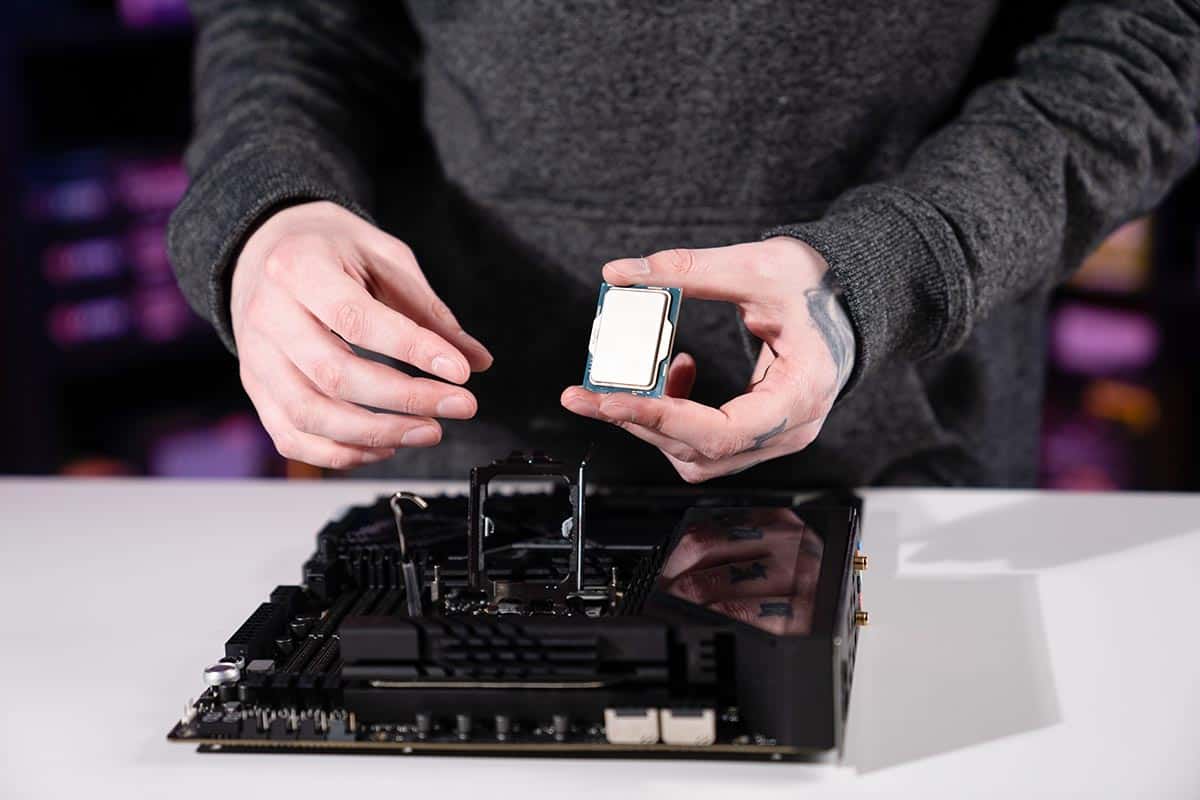
We have a ton of experience testing CPUs here at WePC. Whenever we conduct a hands-on CPU review, we make sure to push it to its limits to see how well it performs across a number of games, software, and benchmarking tools. Aside from the specs, this gives us a strong understanding of what to (and what not to) recommend within our CPU guides. In the case that we haven’t reviewed a particular SKU, plenty of research is done to ensure that we recommend a quality product.
If you want to learn more about this process, head on over to our ‘how we test CPUs‘ page.
Things to consider
When you’re buying a new CPU, there are a number of things you need to pay attention to before you commit to one. We discuss a few of the key aspects of CPU shopping just below to help you out.
Clock speed
Look through the specs of any CPU you come across and you’ll probably see the clock speed (or CPU speed) listed right away. Clock speed refers to how many times the processor can execute a cycle each second – obviously, the faster the better. This is important for single-core performance in particular, but it gives a good idea of how fast the CPU is overall. The boost clock speed represents how far it can be pushed and this is one of the specs you want to look out for.
Cores / Threads
Cores and threads are a massively important part of a CPU’s structure. The more cores (and in turn threads) you have, the more easily your processor can handle many tasks at once. If you’ll be doing a lot of multitasking, then making sure you have plenty of cores is important. Likewise, many modern games rely on good multi-core performance to provide smooth gameplay free from stuttering. Eight cores or more is recommended if you plan on heavy workloads, but more efficient 6-core models like the 7600X do the job nicely.
Bottlenecking
Running into a CPU bottleneck can be a frustrating experience. This is when the rest of your system, chiefly the GPU, is far too powerful – causing a mismatch. In other words, your CPU is slacking and cannot keep up with the power of your graphics card, causing a bottleneck which affects the performance of your GPU as it won’t reach its full potential. Luckily, many modern processors are up to the task and bottlenecks are minimized. Likewise, the RX 7600 XT is not a massively demanding GPU by today’s standards, instead being targeted for 1080p gaming – nothing on the level of the RTX 4090, for example.
Overclocking
Overclocking isn’t an essential part of using a CPU, but it is something you may be interested in. As the name implies, overclocking is when you boost the performance of your processor by upping the clock speed. Many CPUs are ‘unlocked’ – meaning that they are free to overclock without too much hassle at all. Feel free to read through our how to overclock your CPU guide to learn all about it, especially if you want greater speeds.
Best CPU for RX 7600 XT FAQs
Do I need a good CPU for RX 7600 XT?
The RX 7600 XT is a budget-friendly card designed for 1080p gaming, or 1440p at most. As such, you don’t need a super powerful CPU to back it up. However, if you want to be doing some CPU-intensive workloads alongside gaming, then an above-average processor is always suggested.
Is Intel or AMD CPU best for the RX 7600 XT?
Generally speaking, it doesn’t make much of a difference. Paying attention to motherboard compatibility is more important. AMD’s Ryzen processors are popular for gaming (especially the 3D series), and Intel’s CPUs are popular for productivity.
The RX 7600 XT is an AMD graphics card and pairing it with an AMD processor does offer optimizations such as Smart Access Memory, but the difference is minor in the grand scheme of things.

